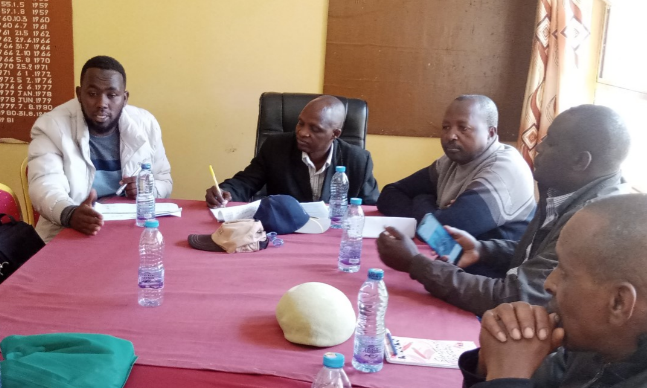Women, youths turn to vocational training to tackle unemployment

The growing challenges of unemployment, economic hardship, and climate change shocks have pushed many women and youths in Marsabit County to embrace vocational training as a means of survival.
During the recent graduation of 30 trainees from the Ujuzi Manyattani vocational program in Laisamis, participants expressed gratitude for the skills they gained under the MashinaniWorks initiative.
These training programs, tailored for pastoralist communities, aim to combat unemployment and promote skill-based enterprises.
Secure contracts
Ms Martha Koiyan, a graduate of Bakery, Cake Making, and Decoration, praised the three-month course for equipping her with the tools needed to secure contracts in her region.
“Today, I walk with my head held high, knowing I can earn a meaningful living and support my family,” said Ms Koiyan.
She urged the government and other stakeholders to invest in more artisan training programs for women and youths, enabling them to diversify their livelihoods.
Ms Koiyan is among many pastoralists in Marsabit county who lost over 300,000 livestock—the backbone of their economy—due to severe droughts between 2019 and 2022.
Vocational training
She emphasized that vocational training offers a pathway to recover from such disruptions while reducing dependence on food aid.
She further observed that empowering women through skill acquisition could mitigate gender-based violence, often driven by economic hardship.
Additionally, practical skills enable women to overcome property ownership challenges entrenched in patriarchal systems. Ms Koiyan also commended the program for transforming Morans—traditionally involved in cattle rustling—into productive community members through training.
Dida Fayo, Northern Rangelands Trust Regional Director, highlighted a shift in mindset among women and youths in pastoralist communities.
Fayo noted that increasing enrollment in vocational training programs was beginning to address the region’s skills gap, which previously required importing artisans from other areas.
Despite these gains, Marsabit County faces significant challenges, with a poverty rate exceeding 65 percent and an illiteracy level above 75 percent.
County Secretary Hussein Tari underscored the role of economic empowerment in reducing gender-based violence.
“The best way to neutralize rampant gender-based violence is by economically empowering men and women to provide for their families,” he said.
Laisamis MCA Daniel Burcha commended vocational training for enabling households to combat malnutrition, especially in Laisamis, Moyale, and North Horr Sub-Counties. Since its inception in 2019, the Ujuzi Manyattani mobile vocational training programme has trained 1,523 women and youths in various artisan courses.














